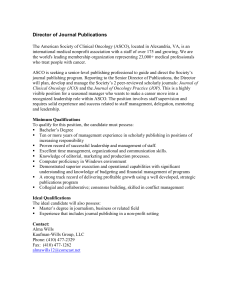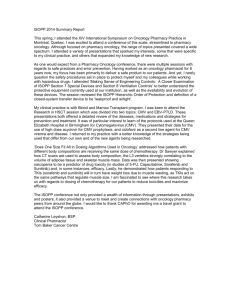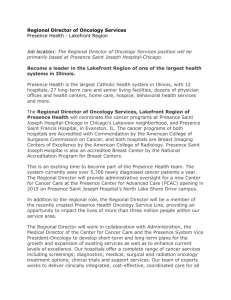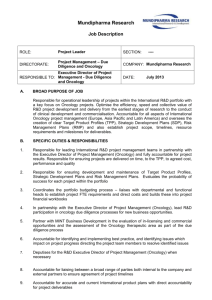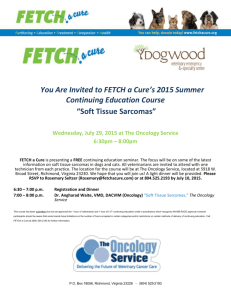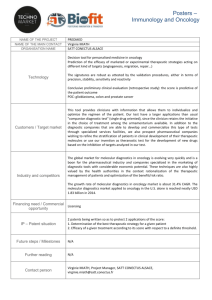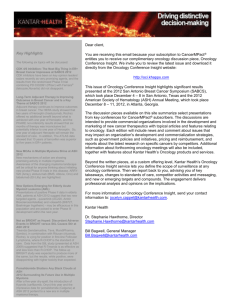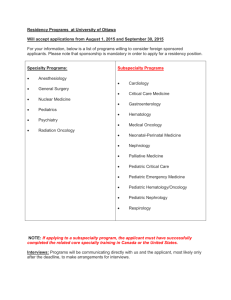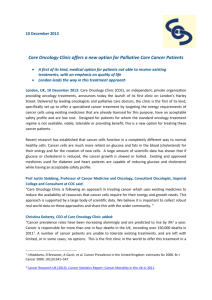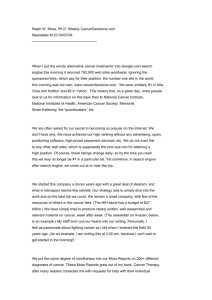Please click here to read the complete memo
advertisement
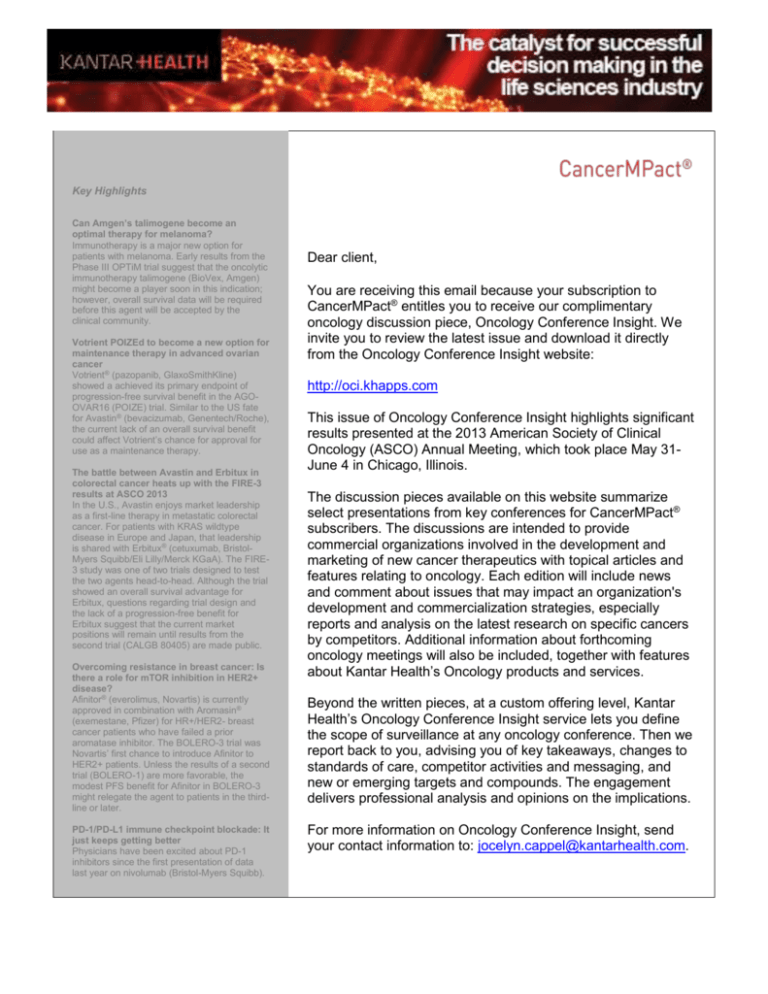
Key Highlights Can Amgen’s talimogene become an optimal therapy for melanoma? Immunotherapy is a major new option for patients with melanoma. Early results from the Phase III OPTiM trial suggest that the oncolytic immunotherapy talimogene (BioVex, Amgen) might become a player soon in this indication; however, overall survival data will be required before this agent will be accepted by the clinical community. Votrient POIZEd to become a new option for maintenance therapy in advanced ovarian cancer Votrient® (pazopanib, GlaxoSmithKline) showed a achieved its primary endpoint of progression-free survival benefit in the AGOOVAR16 (POIZE) trial. Similar to the US fate for Avastin® (bevacizumab, Genentech/Roche), the current lack of an overall survival benefit could affect Votrient’s chance for approval for use as a maintenance therapy. The battle between Avastin and Erbitux in colorectal cancer heats up with the FIRE-3 results at ASCO 2013 In the U.S., Avastin enjoys market leadership as a first-line therapy in metastatic colorectal cancer. For patients with KRAS wildtype disease in Europe and Japan, that leadership is shared with Erbitux® (cetuxumab, BristolMyers Squibb/Eli Lilly/Merck KGaA). The FIRE3 study was one of two trials designed to test the two agents head-to-head. Although the trial showed an overall survival advantage for Erbitux, questions regarding trial design and the lack of a progression-free benefit for Erbitux suggest that the current market positions will remain until results from the second trial (CALGB 80405) are made public. Overcoming resistance in breast cancer: Is there a role for mTOR inhibition in HER2+ disease? Afinitor® (everolimus, Novartis) is currently approved in combination with Aromasin® (exemestane, Pfizer) for HR+/HER2- breast cancer patients who have failed a prior aromatase inhibitor. The BOLERO-3 trial was Novartis’ first chance to introduce Afinitor to HER2+ patients. Unless the results of a second trial (BOLERO-1) are more favorable, the modest PFS benefit for Afinitor in BOLERO-3 might relegate the agent to patients in the thirdline or later. PD-1/PD-L1 immune checkpoint blockade: It just keeps getting better Physicians have been excited about PD-1 inhibitors since the first presentation of data last year on nivolumab (Bristol-Myers Squibb). Dear client, You are receiving this email because your subscription to CancerMPact® entitles you to receive our complimentary oncology discussion piece, Oncology Conference Insight. We invite you to review the latest issue and download it directly from the Oncology Conference Insight website: http://oci.khapps.com This issue of Oncology Conference Insight highlights significant results presented at the 2013 American Society of Clinical Oncology (ASCO) Annual Meeting, which took place May 31June 4 in Chicago, Illinois. The discussion pieces available on this website summarize select presentations from key conferences for CancerMPact® subscribers. The discussions are intended to provide commercial organizations involved in the development and marketing of new cancer therapeutics with topical articles and features relating to oncology. Each edition will include news and comment about issues that may impact an organization's development and commercialization strategies, especially reports and analysis on the latest research on specific cancers by competitors. Additional information about forthcoming oncology meetings will also be included, together with features about Kantar Health’s Oncology products and services. Beyond the written pieces, at a custom offering level, Kantar Health’s Oncology Conference Insight service lets you define the scope of surveillance at any oncology conference. Then we report back to you, advising you of key takeaways, changes to standards of care, competitor activities and messaging, and new or emerging targets and compounds. The engagement delivers professional analysis and opinions on the implications. For more information on Oncology Conference Insight, send your contact information to: jocelyn.cappel@kantarhealth.com. More recently, inhibitors to a companion immune checkpoint molecule, PD-L1, are being examined in clinical studies. Current data on all these competitors presented at ASCO 2013 will be discussed. Will conflicting data for Avastin in glioblastoma bring on brain fog among physicians? Avastin is conditionally approved in the U.S. (but not in Europe) for second-line glioblastoma. The results of the AVAglio and RTOG 0825 may have halted the opportunity for this agent to be moved to frontline use; however, what might happen to its current approval? Can second-generation ALK inhibitors outshine Xalkori? Xalkori® (crizotinib, Pfizer) is the first agent to be approved for ALK+ NSCLC, as it shows remarkable efficacy in these patients. Unfortunately, these patients still relapse, and second-generation ALK inhibitors are being developed to treat these patients. Phase I data from several of these agents which was presented at ASCO 2013 will be compared and discussed. Significant Improvement in outcomes for chronic lymphocytic leukemia: The first of many? The Stage I results of the CLL11 trial should support the approval of anti-CD20 molecule obinutuzumab (Genentech/Roche) for newlydiagnosed patients unable to receive standard chemotherapy. Although the Stage II results will provide a direct comparison between obinutuzumab and Rituxan® (MabThera® in Europe, rituximab, Genentech/Roche), data from the Stage I favor obinutuzumab. Kantar Health Dr. Stephanie Hawthorne, Director Stephanie.Hawthorne@kantarhealth.com Bill Bagwell, General Manager Bill.Bagwell@kantarhealth.com
